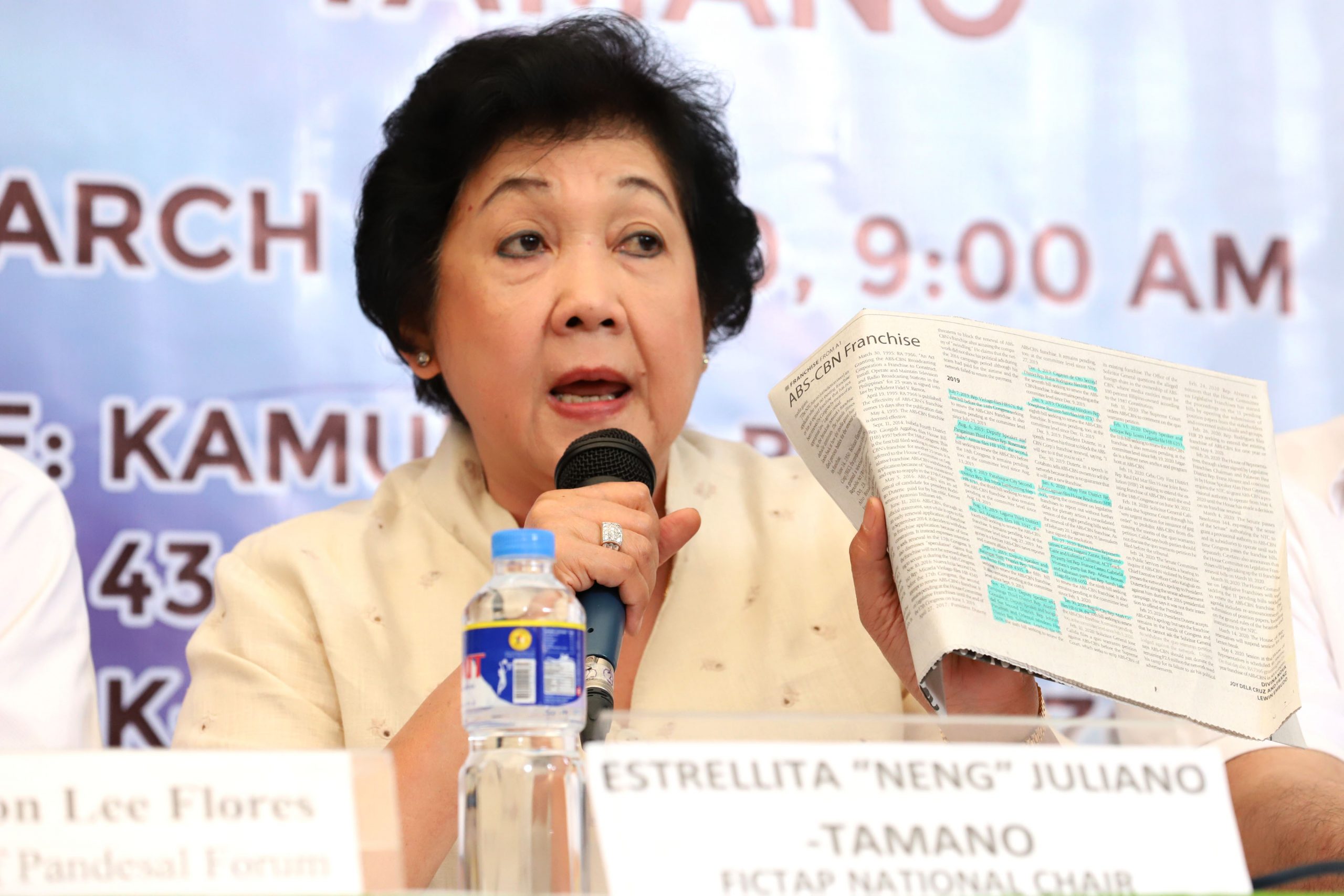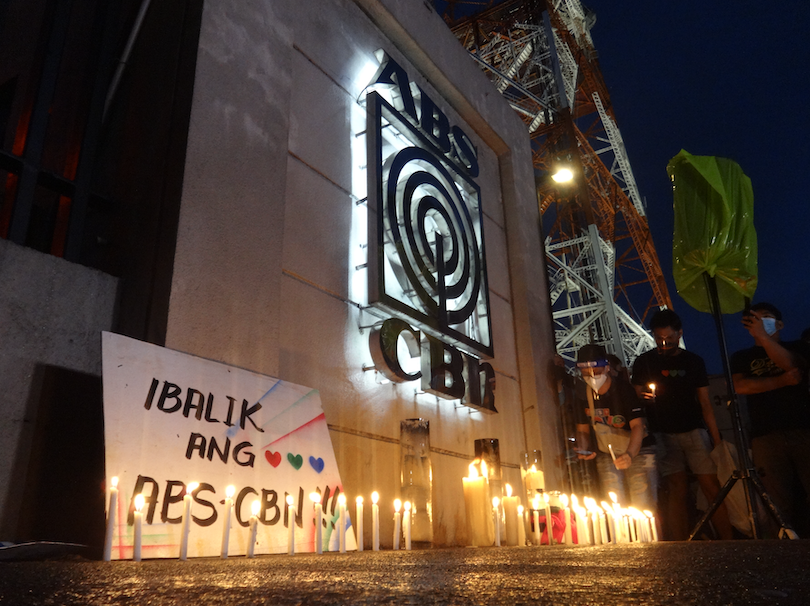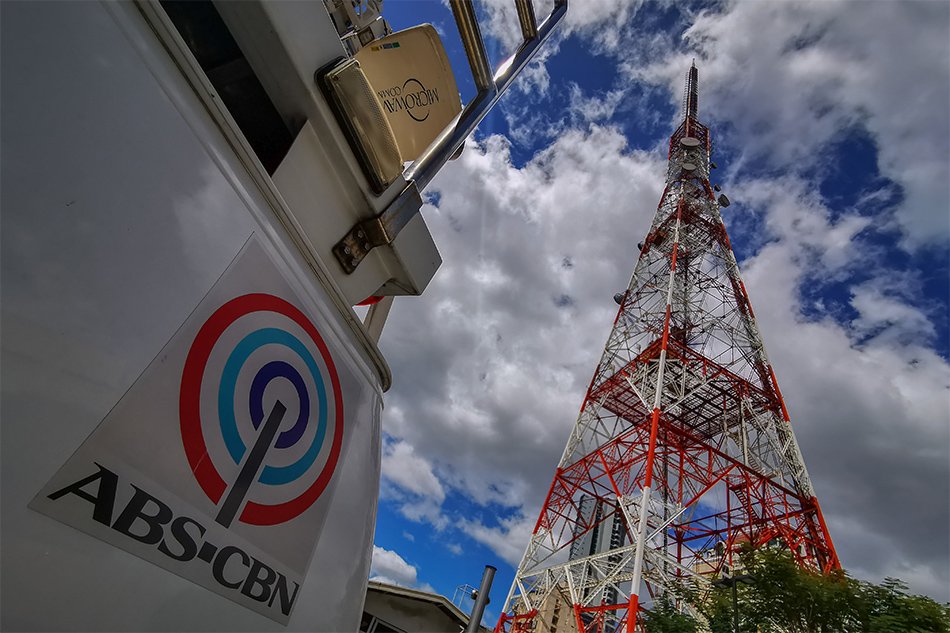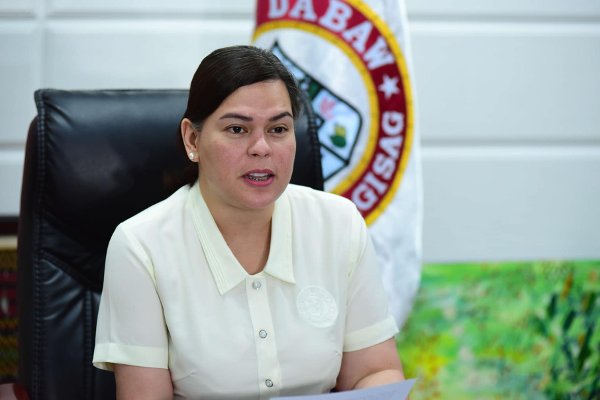Estrellita Juliano-Tamano, president of the Federation of International Cable TV and Telecommunications Association of the Philippines (FICTAP), falsely claimed that media network ABS-CBN violated the law for broadcasting on multiple channels under one franchise.
STATEMENT
In an interview with GMA 7 on May 5, after ABS-CBN was served a cease and desist order by the National Telecommunications Commission (NTC), Tamano said ABS-CBN’s franchise renewal was “far” from the original:
“Meron po silang idinagdag doon. Ang ibig sabihin, one franchise, one channel…Ang kaso po, nung nag-apply sila nung 2014, ang nangyari po…ay dinagdagan nila ng ‘S’ ‘yung channel — channels, channels. Magkaiba ang channel, single channel, at magkaiba din ‘yung channels.
(They added something there. [The policy is] one franchise, one channel…However, when they applied in 2014, they added “S” to “channel,” [so it became] channels. Channel is different from channels.)”
She added:
“Nilagay nila maraming channels para, ang paniwala namin, para ma-justify nila ‘yung kanilang Mahiwagang Black Box o kaya ‘yung TV Plus na ginamitan nila ng anim na channels na walang franchise (They included several channels, we believe, so they can justify their Mahiwagang Black Box or TV Plus for which they use six channels without a franchise).”
Source: GMA News, 24 Oras: Panayam kay Neng Juliano-Tamano, Presidente ng FICTAP, May 5, 2020, watch from 0:45 to 2:27
FACTS
Republic Act No. 7966 — the law that granted ABS-CBN a 25-year legislative franchise in 1995 — does not have any provision stating that a broadcast frequency assigned to the network could be used only for one channel.
On the contrary, Sec. 1 of the law says:
“…the ABS-CBN Broadcasting Corporation….is hereby granted a franchise to construct, operate and maintain, for commercial purposes and in the public interest, television and radio broadcasting stations in and throughout the Philippines, through microwave, satellite or whatever means including the use of any new technologies in television and radio systems, with the corresponding technological auxiliaries or facilities, special broadcast and other broadcast distribution services and relay stations.”
Sources: The Corpus Juris, Republic Act No. 7966; Chan Robles Virtual Law Library, Republic Act No. 7966
Like other networks that seek to operate on free television, ABS-CBN is required to secure the appropriate permits and licenses from the NTC before operating under its Congress-granted franchise. It is also restricted from using other frequencies for its television and radio broadcasts that were not assigned by the agency among other telecommunication services.
A comparative review of the legislative franchises granted in the 1990s to other broadcast giants — TV5 (formerly known as Associated Broadcasting Corporation or ABC 5) in 1994 and GMA Network in 1992 — and ABS-CBN showed that they had almost the same provisions as that of RA 7966.
Both GMA Network and TV5 had already secured a 25-year extension of their own franchise in 2016 and 2018, respectively, while ABS-CBN has failed to get a franchise renewal to date.
Moreover, in 2013, the NTC announced that the Philippines was officially shifting from the use of analog to digital television, using Japanese technology as the “sole standard” in offering digital terrestrial television services around the country.
According to the Department of Information and Communications Technology (DICT), the shift to Digital Terrestrial Television Broadcasting (DTTB) will help capacitate broadcasters to provide “multi-channels” by using just one frequency, aside from other potential services such as the emergency warning broadcast system.
In 2013, the agency crafted a 10-year migration plan to guide broadcast stations in adapting and acquiring new technology for the shift to digital television until it fully switches off all analog services by Dec. 31, 2030.
In it, the department said:
“DTTB allows for flexible broadcasting services through hierarchical transmission, premised on more efficient use of the frequency since the spectrum used for a single analog SDTV channel can now accommodate multiple digital SDTV channels, and a combination of services for several types of reception in one frequency channel.”
The plan follows the best practices of over 150 countries that have already started or finished transitioning to digital television, including the United States, which began in 1998 but finished only in 2009, according to the International Telecommunication Union.
To facilitate the “smooth flow” of transition, the NTC required the use of ISDB-T receivers, or set-top box sets, among other equipment, that are capable of receiving digital broadcast transmissions.
ABS-CBN’s shift to digital signal formally began when it launched the set-top box device TV Plus in 2015, which it used to broadcast 13 free exclusive channels and the pay-per-view KBO.
The TV Plus, however, specifically its sub-product KBO, was questioned before the Supreme Court by Solicitor General Jose Calida in February for not securing a permit from NTC, which ABS-CBN had denied.
The NTC’s May 5 cease and desist order contradicted its earlier promise to issue a provisional authority to allow ABS-CBN to continue operating while Congress has yet to deliberate on its franchise renewal. (See VERA FILES FACT CHECK: NTC backpedals on ABS-CBN franchise)
FICTAP is the “largest non-profit organization of cable television operators from all over the country” with about 1,000 members, according to its official website.






